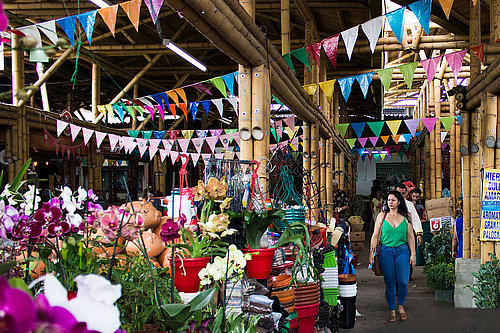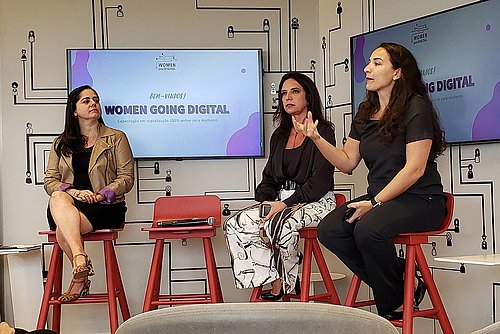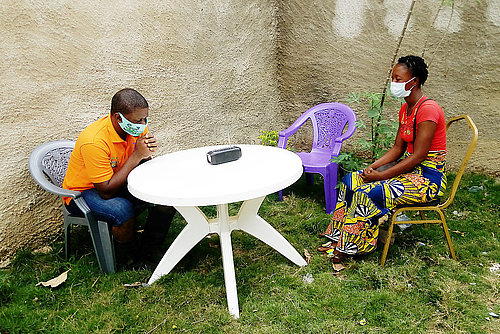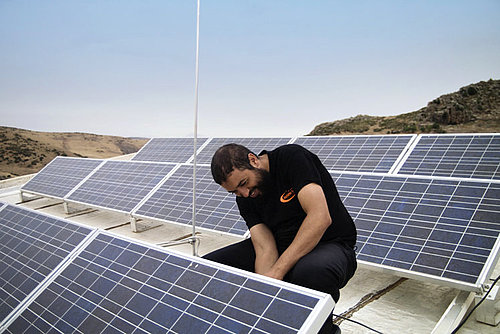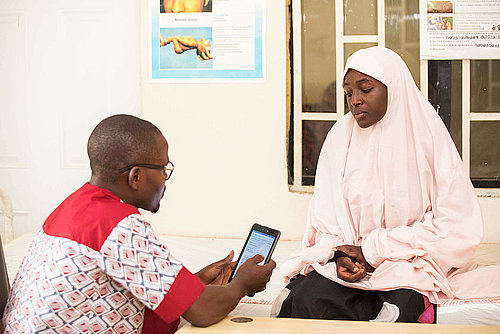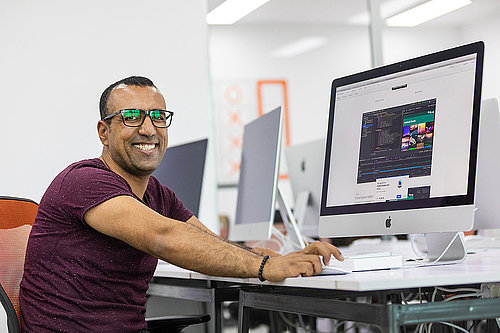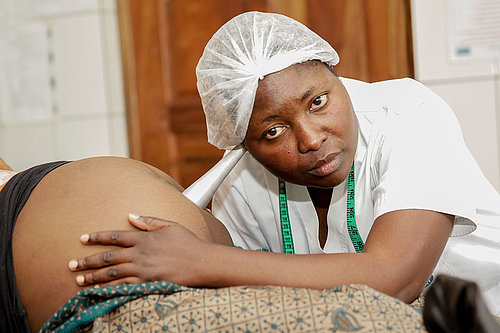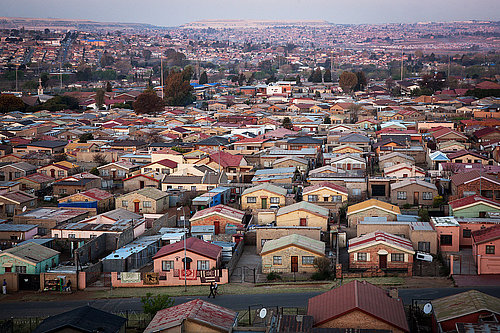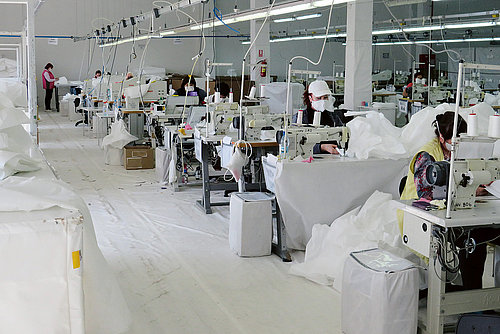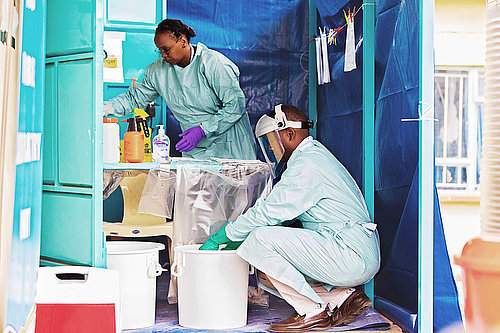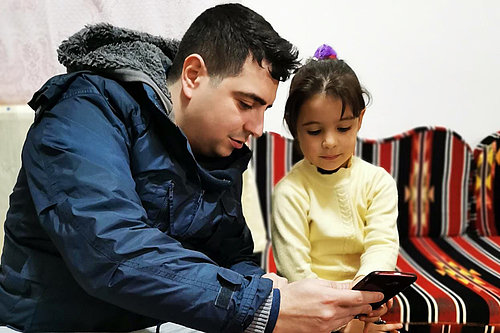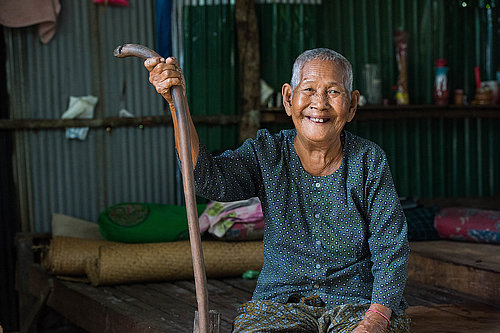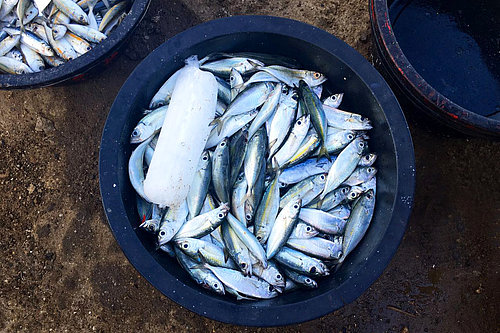How Covid-19 is changing the way we work
West Africa:
disease control
made in Nigeria
The coronavirus pandemic has led to some evident changes in our project work. Collaboration – within teams, but also with stakeholders – is now much more flexible. A fast internet connection and functioning applications for online meetings and e-learning are now more important than ever. But it’s not just the general conditions that have changed. The virus also plays a direct role in my daily work, disease control. Understanding chains of infection quickly and identifying drivers of disease – this is essential to take effective action. The digital health tool SORMAS facilitates the identification of cases, contact tracing, task management, and digital processing of laboratory data. Its flexible and modular design makes it possible to quickly integrate new diseases and technical innovations. As a result, SORMAS helps mitigate the impact of COVID-19. Overall, the pandemic has shown my colleagues and me that we can effectively move projects forward despite adverse circumstances.

(© Maureen Odochi Anyanwu)
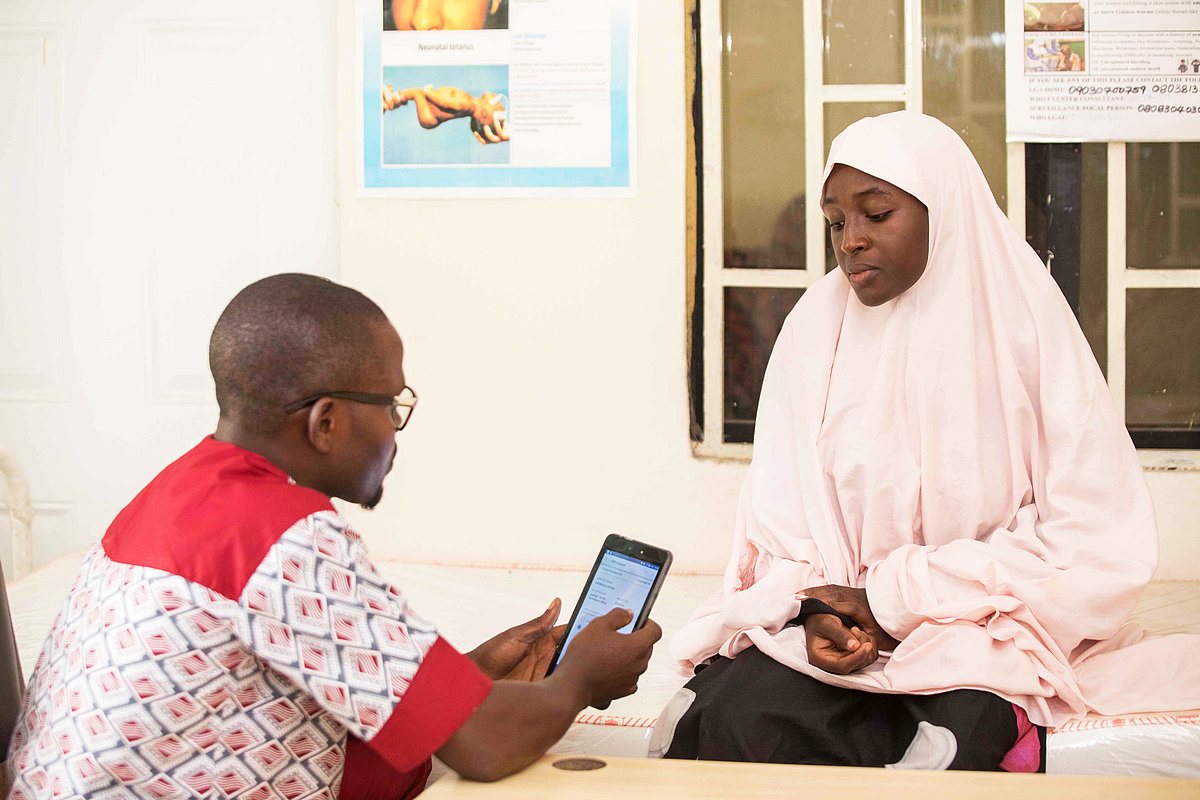
The e-health tool SORMAS (Surveillance, Outbreak Response Management and Analysis System) provides for better health protection for more than 200 million people in Ghana and Nigeria. GIZ is supporting the implementation and further development of SORMAS on behalf of BMZ, with cofinancing from the EU. Health care personnel use the SORMAS software to record data on infected individuals and their contacts. The data is then made available automatically and immediately to the relevant authorities. SORMAS was developed in 2014 during the Ebola epidemic under the leadership of the Helmholtz Centre for Infection Research and has been continuously expanded with the support of a community of developers, contributors and implementers. This meant it could be rapidly deployed as part of efforts to contain COVID-19. The open source software, which was designed and tested in Nigeria, is now also being used in Germany.
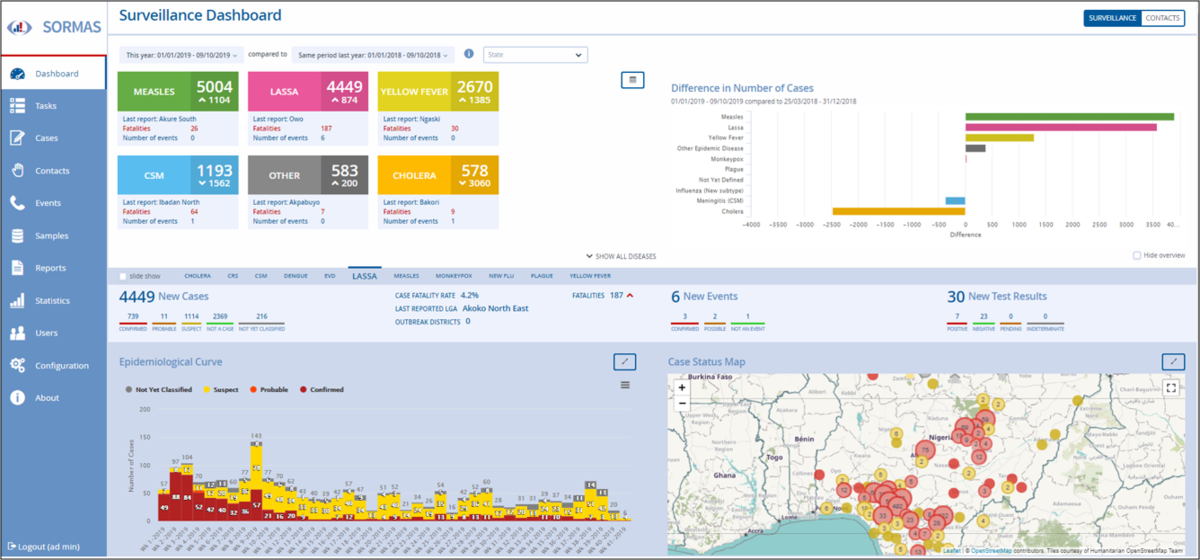
(© GIZ / Brooks Photography)
Information on the following Sustainable Development Goals (SDGs) can be found on this page:
Our projects in the 2020 Integrated Company Report
Do you want an overview of all the projects in the 2020 Integrated Company Report? Select a project below:
- Bosnia and Herzegovina: a magnet for adventurous tourists
- Brazil and Mozambique: going digital
- Democratic Republic of the Congo: a prescription for better health
- Global: a new digital era
- Global: artificial intelligence for all
- Global: centres for digital transformation
- Indonesia: ice from solar energy
- Cambodia: no one is overlooked
- Latin America: naturally cool
- Lebanon: educational opportunities for all
- Morocco: on track towards the technology of the future
- Moldova: new patterns, new opportunities
- East Africa: fighting infections
- Sierra Leone: radio programme provides support in the crisis
- South Africa: green investing
- West Africa: disease control made in Nigeria
Do you want to learn more about GIZ’s work? You’ll find information about around 1,600 ongoing projects here.

